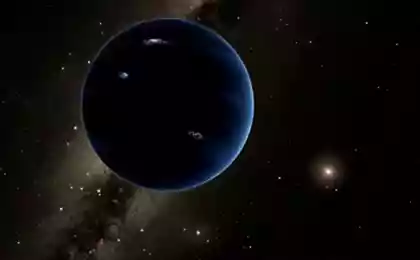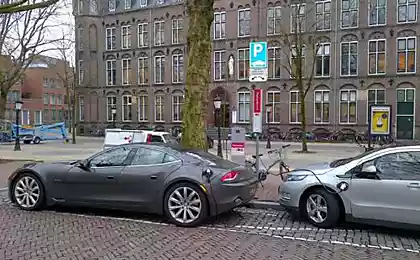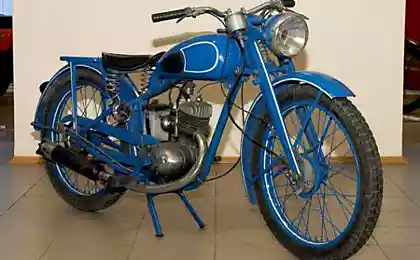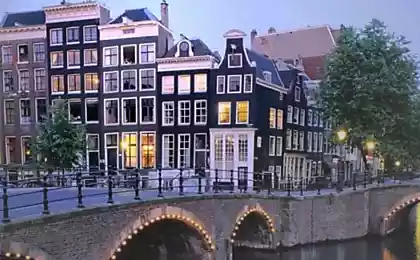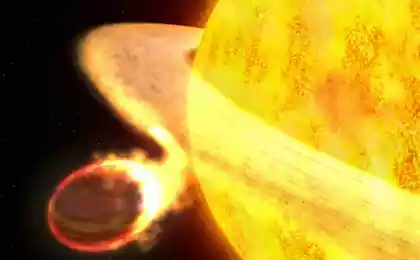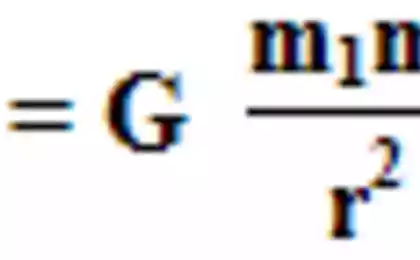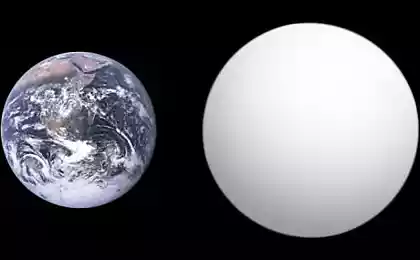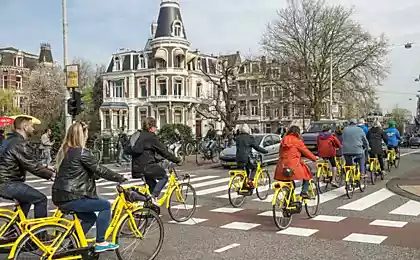662
Innovation ecosystem of the Netherlands
I personally was interested to see how it happened that a country traditionally famous for its large corporations as Shell, Philips, DAF, etc. quickly became one of the places generating large amounts of startups, a significant proportion of which become significant technology companies. After most of the corporations had big problems that were accompanied by reductions of tens of thousands of people, this country was able to move quickly, focusing on the development of innovation ecosystems on the model of "Triple helix" (as it is now called the interaction between Business-science-government).
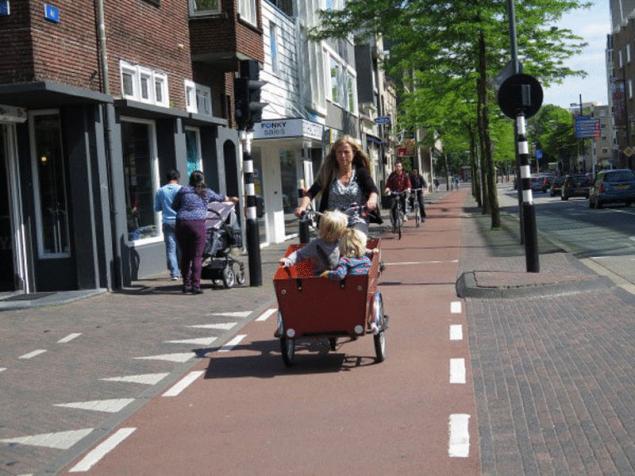
Immediately striking that the Dutch live very well – the price level is higher than the European average, possibly at the level of Scandinavian countries. Almost everywhere free access to Wi-Fi. In this case, the abundance boast not accepted – expensive cars very little. Anyway, cars on the road at the Dutch move around on bicycles. When we were in Eindhoven, the organizer of the trip from the Dutch side PIM van Geest told that the Dutch love when work is a little away from the house, so each morning instead of charging to ride a bike at a leisurely pace for 15-30 minutes. Despite the fact that the tubes does not, on bicycles to move a small distance even faster – for them everywhere dedicated bike paths. So we moved to Eindhoven it is on the bike.
Eindhoven is the birthplace of Philips. Although perhaps to say that is not quite right because, when in 1890, the elder brother of Anton Philips (which actually became the founder of a technology company a little later in 1895) decided to organize the textile industry, Eindhoven was just a village. By 1900, there already lived 5,000 people, and the Philips is by this time actively engaged in breakthrough technologies in lighting. In 2000, the population of Eindhoven was already 200 000 people. It корпорацияPhilips played a key role in the development of the city.
By the way, the Museum Philips told us that the first major transaction was the sale in 1898, 50,000 light bulbs (in those days an incredible number) to the Winter Palace in St. Petersburg. It is believed that after this the company began to develop rapidly, gain a lot of money, and most importantly having world wide popularity and PR, based on this order.
Remember the saying of Anton Philips, who in 1950 said, "What we need are people with imagination".
By the way, in the words of one of our interlocutors, Philips began to take the position that, when the management of the Corporation stabalise to pay attention to the current value of the stock rather than innovative development. Philips was less risk of creating something completely new and a breakthrough. While creative people have it harder for self-actualization in Phillips.
For example, in the late 1990-ies Philips did not Fund the development of devices that would allow to have all the music that just exists. For two years a Tony Fadl — employee of Philips (one of the "man with imagination") — tried to achieve the implementation of the project, and then went across the ocean, and after a short period of time Steve jobs presented the World the iPod that changed the music industry.
Philips did a lot of spin-off companies, thanks to what appeared such as, for example, the ASML company, established in 1984, now it is a Corporation that cost has outgrown the Phillips. Mykola Stepanenko, senior Manager, strategic sourcing ASMLувлеченно tells how rapidly they are growing, what they have ambitious plans for many years to come. The company is one of the world leaders in chip sales in 2014 amounted to 6 billion euros, the company employs approximately 14,000 people (very soon, and at this rate they will overtake Philips). With more than 1 billion in revenue the company has invested in R&D. in Parallel, the company develops new light sources, lithography. Nicholas says with regret that in Eindhoven a lot of Russian that in Russia it is more difficult for self-actualization.
His words were confirmed by Alexander Dolgov, who worked in the laboratories ASML-Research on his second dissertation (the first Ph. D. Alexander was in the Institute of Spectroscopy, Russian Academy of Sciences). Today it is the industrial representative of Rosnano in the European scientific and industrial consortium Solliance thin-film photovoltaics : “Today there are all necessary equipment and conditions for realization of technological breakthrough in the field of integration of photovoltaic technology into a manufacturing (automotive, construction and even clothes), Russia, this is difficult.”
The company ASML is partially housed in the HTC Eindhoven is just a huge area where once stood the R&Dцентр Philips. Now HTC employs over 10,000 people, more than 135 companies, including Philips. Earlier it was accessible by appointment only, now there are no restrictions, and the room filled with various technology companies and research centers.
It is worth noting that the conversation took place in the premises of Solliance. This consortium brings together R&D organizations from the Netherlands, Belgium and Germany with krupali international industrial companies (Thyssenkrupp, Roth&Rau, VDL). Here science and business are working together, developing technology solutions in thin-film photovoltaics (Thin-film photovoltaic or TFPV). The scientific part of the Alliance now unites 8 leading scientific institutes in Germany, Belgium and the Netherlands. In each of these institutions at Solliance employs 25 to 40 people. Money for research and prototyping are drawn from various sources and distributed to scientific groups. The motto of Solliance:“If I share, will get more.” This is another example of how the basic principles of "Open innovation". The partners share the products of intellectual labor, develop the overall strategy of the innovative breakthrough, share risks, and then to divide the profits. The principle that only in very rare cases, implemented in our country.
Here at High Tech Campus Eindhoven is the accelerator Startupbootcamp HighTechXL.
The accelerator was named the best acceleration platform of European version of European Bus 2014. The accelerator works with projects in areas of Internet of things, new materials, robotics, energy efficiency, 3D-printing, Cleantech, MedTech. For the year doing 2 sets, the program lasts 3 months. Of the 21 graduate 13 – foreign startups, so the program is in English language (good in the Netherlands almost everybody speaks English). At the entrance due to the brand (just look on this fantastic statistics accelerator Startupbootcamp ) they manage to create a big funnel of projects (over 1000 applications), they select the best 100 projects that come to Eindhoven and 4 days working with experts from major corporations and mentors from the business. In the 10 best projects are selected for the accelerator, where he worked on the business model of a startup.
According to co-founder of the accelerator Eric Brockhusen, for the remaining 90 projects, which came to final selection, the participation in this 4-day expert session was of great benefit. The accelerator at the entrance buys 8% stake in the startups for 15,000 euros. Remember that the accelerator has an agreement with the faculty of Economics, students practice helping startups and analyze market, prepare financial plans. Soon to be another set says that there is a Russian application. My question is, how did they manage to do one acceleration program for as different sectors as medicine, the Internet of things and energy Eric replied that work is mainly individual, with the involvement of excellent industry experts and mentors – working ecosystem.
In the municipality of Eindhoven, we were greeted by two lovely ladies, who told us about the role of the state in the development of innovation ecosystem of the city. Eindhoven by the way, direct investment takes 3rd place in Europe after London and Helsinki.
They see the main role of the state in creating conditions for interaction between participants of the innovation process. The municipality helps to organize a large number of events, where in informal atmosphere you can meet scientists and entrepreneurs, where students can hear about existing trends.
Here is the formula of Eindhoven: “the Ecosystem is formed by people. Need trust so that people began to interact with each other. Our aim is to increase the level of trust and to develop the entrepreneurial spirit”
PSV have relied on the concept of BrainPort (the nerve center). The goal is to make Eindhoven the Netherlands center for innovation.
After Philips has cut 40 000 people in Eindhoven a lot of buildings were empty.
In that moment, when they began to be free and empty entire buildings that previously worked tens of thousands of employees of Philips, the municipality decided to transform them into business incubators is to pass on low rates to rent to entrepreneurs.Nondescript buildings not to alter, instead, hired well-known designer who has rapology along the front flower beds (Eindhoven – one of Europe's centers for the development of the design – here, by the way is annually held design week DDW). Designers have proposed to make the roof of the exploited, planted vegetation and even small trees. So with minimal investment has created the infrastructure to primlemaya to be called business incubators. By the way now, as we said, almost all buildings are occupied. Similarly, R&D center of Philips has become a platform for the High Tech Campus. The Dutch know how to use what is there without significant investment.
Throughout the trip we constantly heard about the importance of trust in the formation of ecosystems. Immediately I remembered how one friend of the entrepreneur once expressed his opinion on the difference in doing business in Russia and Western Europe: "When did you first begin to establish a relationship with someone in Europe, you initially tend to trust; in Russia initially, nobody trusts anybody, trust has to be earned". By the way, I thought, the mentality of the Dutch helps to build trust. At school the children sit in a semicircle, children are taught to listen carefully to the view of each classmate (no matter even if the child is retarded, all the same, his opinion is important). Adults also love to discuss everything and listen to all points of view. The Dutch are quite direct, it might even seem that they are rude, but the low level of hypocrisy helps to increase the level of trust. The Dutch do not like hierarchy. Bosses decided to tell the whole truth and communicate on an equal footing – the only difference is the level of responsibility and job duties. The engineer can easily send an email to the President with some range and he will usually answer. When we are already in Twente talked to KIIS Eijkel, CEO of Kennispark Twente (technology Park, where for 32 out of more than 800 startups, including such known as the Booking.com), he said, "every day I have to work to prove to my team why I'm the leader, why I'm here boss."
Twente is similar to the Eindhoven history that gave impetus to the development of the innovation ecosystem. In Twente has historically been a highly developed textile industry. In the late 1950-ies it became clear that the center of production moves to Asia and companies in Twente is no longer able to compete in the global market. Then the decision was made to create a regional technical University (1962), which was supposed to create conditions for the emergence of new businesses to compensate for the economic losses and the decrease in jobs. At the University of Twente has a strong scientific base, and in 1980, the year he became one of the first entrepreneurial universities – University 3.0. City Twente is twinned with the American Palo Alto Silicon Valley.
Thus, there is a substantial difference with the model of Eindhoven, when the ecosystem was formed on the ruins of Philips and DAF, when there were many talented engineers, the task was to stimulate technological entrepreneurship. In Twente essentially formed the ecosystem from scratch around the University.
In Twente there is the necessary infrastructure for development of technological business and research Park, Kennispark Twente, University of applied Sciences Saxion, the academic center for entrepreneurship at NIKOS (they HAVE a course of 5-8 weeks for technological entrepreneurship and innovation), seed and pre-seed venture funds (collaborating with Cottonwood Fund Investments - one of the most successful funds in the early stages, which helps the Dutch to think like American venture capitalists "to think first about the potential of the project, then about the risks" instead of Dutch "first, the calculation of risks, then the potential of the project"), Proof of concepts Center...
The science Park Kennispark Twente is involved in determining economic policy in the development of innovative activities (the basis for the development of the region according to their strategy). In 2005, Twente began to create an innovative platform, invited the presidents of universities, mayors of the region, representatives of innovative infrastructure. They managed to jointly develop a strategy for the region based on the policy of the trust.
How to convince people to share ideas? It is important to create trust is an essential part of success. They see the primary role of the state in creating an atmosphere of trust is for them the main task.
In Twente aim to create a culture of benefit not now, but in 5-8 years. It is important to be able to work for the future.
KIIS Accel in his brilliant presentation, suggests that Russia's time to get out of the routine at the top of the triangle – in philosophy we have a problem in understanding the importance of relationships between people. He lived in Russia and knows how much we have creative people. They need to create the conditions, the General atmosphere for effective interaction with each other.
The mission of the science Park Twente is to support the innovation ecosystem. By itself, the business incubator will not work — need an ecosystem with mentoring and support. For technology entrepreneurship needs a bunch of “Science – business”, while the weakest link determines the overall system efficiency.
In the science Park working Group “development of business” – their task is to walk on the institutions, departments and communicate with professors. Group business development looks at what developments you can build a business and then help to create teams with the participation of entrepreneurs. Try to create interdisciplinary working groups. The objective of the group's business development — to create teams and develop businesses to look for options to attract investment. However, the group business development should be independent, so group members cannot have a share in the projects. The employees of the group business development sign a non-disclosure agreement, even when meeting with students. Again is still the question of trust and value of reputation.
Science Park has its own system of financial support for the projects. The University has a Fund of 80 million euros, which extends loans to project proponents (as individuals). To get 10 000 Euro do you need a presentation of 8 slides and enthusiastic people. Writing a business plan for the 2nd phase 40 000 Euro loan. Loans by the way is not privileged to 11% per annum. My question is that apparently the return is very low, your loans, KIIS said no and 97% return. Of course often the project is closed, but proponents are seeking the opportunity, because reputation is more important. If it is absolutely bad with money, that offer startups a half at least to return. Free money at the beginning of the build harmful – I think in the Netherlands you need to invest and start yourself, and the mistakes you have to pay to digest better. All is solved at the level of human relations “good”, without the courts and police. Can you imagine?
In the science Park there are a lot of activities for student involvement in innovative activities and improving their competencies, and team-building. In 2014, they organized 200 (!) events. KIIS said that there has been a problem in the past, more and more professors are financed by big corporations (Uniliver, Shell, etc.), so are showing less interest in the development of startups based on their research.
Results of operations Kennispark Twente since 1982 is impressive: created 8000 jobs, founded about 900 companies, with the company receiving support, as a rule, remain in the region. Those who leave, still support the ecosystem – so the founder Booking.com often comes in Twente – helps teams as a mentor, invest. By the way Booking.com now is more expensive than Philips.
It was interesting to get acquainted with Yuri Udalov - CTO project EyeOnAir. He is a specialist in the field of spectroscopy of moving materials. In the framework of the project they make a device for the detection of inhomogeneities. He says that from 1 September, European airports introduced a new rule — need to be selectively 20% of passengers to check on the hands and clothes residues of explosives. He aims on the market. First, the project team believed a banker, invested 150 000, later they invested one of the foundations for the evaluation of 3,5 million euros.
Yuri looks like a normal Russian scientist, but expresses thoughts very straight – probably already soaked in 25 years the local culture.
Its history is interesting as he is from science came in to technological business. In 1990 he left Moscow exchange in University of Twente and “stuck” as he says. Long worked in the University was engaged in scientific work. They have in Twente there was a group of Russian scientists headed by Professor Occisum. In 2005, they had thought to do something interesting, otherwise “to our grave I would have written – they worked in the working group of Professor Ochkin. That's all.” They decided to leave University and make the business their knowledge. Founded Stirel (now the parent company of the project enxray). Yuri gratefully says that without the University of Twente would not have been – they helped to make contact with the right people for business development. We have, incidentally, a scientist who leaves the team with a desire to build a business on scientific research in most universities (well, already not all) become “enemy of the people”. To help him in University infrastructure no one will be more likely to interfere. That's the difference. By the way, Yuri promised to apply to the track AeroSpace accelerator GenerationS. Really looking forward to it.
Science Park Utrecht (45 min from Amsterdam) is the development center Life Sciences&Health and Sustainability (science of life and the resilience of natural systems). In the construction and equipping of the centre and the state in the next 2 years will invest EUR 1.2 billion, then 1 billion is Their goal – to become a European leader in Life Sciences&Health, to create a 2018 5,000 jobs.
Now they have something to be proud of – they work a famous scientist, known for stem cell research, a local company that works on cancer treatment in the near future will attract an IPO of about 100M$.
For the development of technological entrepreneurship in this challenging industry are constantly held informal event where scientists and entrepreneurs tell the public about what they are doing, conduct an annual marathon right around and inside the buildings of the science Park (so that people can see where that is). Communications Manager Nikolin, Meijer has formulated its mission as follows:“it is not buildings, but people who change everything. We create the conditions for their work, improve their interaction. We want to connect people.”
There will be a huge building just for startups in the life Sciences. Now the building is under construction, but all the seats are distributed.
Already running a Business incubator utrechtinc.nl. They are for 5 years helped 124 startups from the fields of public health and the environment. Selection of start-UPS carried out 2 times a year. Annually selected 40 projects. Residents receive support for 2.5 years. But the program is divided into blocks. After the first stage, when the teams develop a business model undergoing pitch session, which decides who will stay in the incubator. Unit 2 first customers, develop a prototype, opatovce ends of the pitch session. 3 block – scaling. The business incubator fee – each unit is 1800 EUR. On the question of how they are poor startups take the money, Tijs Markusse (head of the incubator) replied: "Too early to not need help, it is important that the founder of a startup has taken the first step without help. Payment receipt – proof of motivation in the development of the project.”
In addition to the space and educational programs, the incubator helps to create a team of scientists helping to find the owner and Vice versa. On the website of the incubator there is a separate section "Co-Founder, where they always have information about events where you can find a partner. They are pursuing business courses and for scientists, and open science lectures for entrepreneurs. What they look first in the selection? It is important that people be able to change. If a person considers himself the best and not ready to change, it is not to us. Regardless of the project we refuse. Looking for another practical experience of the team members.
By the way summer incubator holds 2 short-term programs for startups – was invited by the Russian team.
Now the population of Utrecht 340 000, 70 000 students. It is evident that the city is very young and growing fast. Liked the original use of unnecessary space — for example, here is the roof of a building that previously housed a car Park.
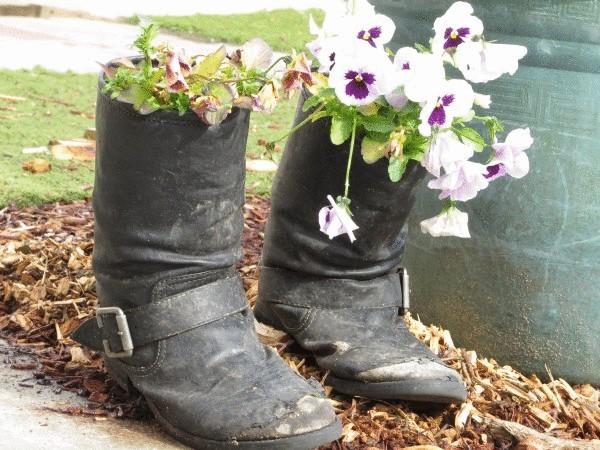
A lot of interesting things in Amsterdam about the support of scientific research said the representative of the TNO – Niderlandskoi organization for applied scientific research. In the Netherlands there are 2 main public funders of R & d: NWO funds basic research, TNO applied research and development.
Applied research in the Netherlands are made solely at the request of major corporations in five key areas – Industry;Healthy Living; Defense, Safety&Security; Urbanisation; Energy.
However, as I understand it, the Corporation concluded the contract is not directly with universities or research institutes, and TNO. But already the task of TNO, using the existing “knowledge Base”, to involve universities, research teams from different organizations for solving problems, thus complementing corporate money budget.
The main KPIs for TNO is the amount of money obtained from corporations to conduct applied research and development.
Industry TNO offers 4 types of services:
1) Consultations (“PwK”);
2) Engineering;
3) the “Technology supply” when TNO asks industry problems and find the solution;
4) development Services the model of open innovation. Assist industry to interact with external developers.
The cost of these services for the industry may be worth from 10 000 to several million euros.
All arij van Berkel (Director of the chemical industry TNO) shared his opinion about problems in the development of innovative ecosystem in Russia: “In Russia, I've seen a lot of talented scientists, which, however, are unable to implement their technology. Scientist no one tells you that you need to make what to do to cooperate with industry. The most important thing you need to create the conditions for collaboration between scientists and industry.”
Similar to the TNO organization according to him has in almost all European countries (he listed the names of counterparts in Germany, Spain, France, Finland, Sweden...). In his opinion it is strange that Russia has not yet carried out systematic work on applied research under the demands of the industry.
From myself I will add that in this system, of course, the most important thing is the requests from industry. However, if a large Corporation of the Netherlands working in global markets, and cooperation with research centers, innovation vital in open competition on world markets, in Russia traditionally, the queries basically look to corporations, which are more competing for the state budget. But the funding scheme for applied research I really liked it, I think you can adapt it for Russia under the current circumstances.
Interestingly, TNO of the Netherlands inside a well-known brand. More than 90% of the population know about this organization. The confidence level is very high, around TNO many investment funds are closely watching the activities of TNO to be the first to see future projects.
Main things noted as a result of 3 days of stay in the Netherlands:
1) the Dutch are very skillfully use the features of the regions, forming ecosystems taking into account the specific location. Eindhoven (the use of the former Philips infrastructure, strategy BrainStorm), Twente – build an ecosystem around the University, Utrecht specialization, attracting the best professionals in the industry).
2) the Role of the state to ensure infrastructure (using existing minimal), the creation of conditions for effective interaction of all participants of process, creation of conditions for business development, tax incentives for startups.
3) For financial support
- the fundamental science initiative, funded by the state budget through special Fund
- applied science only at the request of large enterprises that make a request to the special Fund paying for him. Fund budget adds money and hires universities, using the knowledge Base.
- Innovation activity in the initial stages of development projects supported by repayable loans (not grants).
4) In all innovation centers, the most important task of the Dutch people celebrate the building of trusting relationships between people. "Trust" is probably the most popular word during the trip. Although there is no "bike" in the first place.published
P. S. And remember, only by changing their consumption — together we change the world! ©
Source: bogdanovsamara.livejournal.com/1151.html

Immediately striking that the Dutch live very well – the price level is higher than the European average, possibly at the level of Scandinavian countries. Almost everywhere free access to Wi-Fi. In this case, the abundance boast not accepted – expensive cars very little. Anyway, cars on the road at the Dutch move around on bicycles. When we were in Eindhoven, the organizer of the trip from the Dutch side PIM van Geest told that the Dutch love when work is a little away from the house, so each morning instead of charging to ride a bike at a leisurely pace for 15-30 minutes. Despite the fact that the tubes does not, on bicycles to move a small distance even faster – for them everywhere dedicated bike paths. So we moved to Eindhoven it is on the bike.
Eindhoven is the birthplace of Philips. Although perhaps to say that is not quite right because, when in 1890, the elder brother of Anton Philips (which actually became the founder of a technology company a little later in 1895) decided to organize the textile industry, Eindhoven was just a village. By 1900, there already lived 5,000 people, and the Philips is by this time actively engaged in breakthrough technologies in lighting. In 2000, the population of Eindhoven was already 200 000 people. It корпорацияPhilips played a key role in the development of the city.
By the way, the Museum Philips told us that the first major transaction was the sale in 1898, 50,000 light bulbs (in those days an incredible number) to the Winter Palace in St. Petersburg. It is believed that after this the company began to develop rapidly, gain a lot of money, and most importantly having world wide popularity and PR, based on this order.
Remember the saying of Anton Philips, who in 1950 said, "What we need are people with imagination".
By the way, in the words of one of our interlocutors, Philips began to take the position that, when the management of the Corporation stabalise to pay attention to the current value of the stock rather than innovative development. Philips was less risk of creating something completely new and a breakthrough. While creative people have it harder for self-actualization in Phillips.
For example, in the late 1990-ies Philips did not Fund the development of devices that would allow to have all the music that just exists. For two years a Tony Fadl — employee of Philips (one of the "man with imagination") — tried to achieve the implementation of the project, and then went across the ocean, and after a short period of time Steve jobs presented the World the iPod that changed the music industry.
Philips did a lot of spin-off companies, thanks to what appeared such as, for example, the ASML company, established in 1984, now it is a Corporation that cost has outgrown the Phillips. Mykola Stepanenko, senior Manager, strategic sourcing ASMLувлеченно tells how rapidly they are growing, what they have ambitious plans for many years to come. The company is one of the world leaders in chip sales in 2014 amounted to 6 billion euros, the company employs approximately 14,000 people (very soon, and at this rate they will overtake Philips). With more than 1 billion in revenue the company has invested in R&D. in Parallel, the company develops new light sources, lithography. Nicholas says with regret that in Eindhoven a lot of Russian that in Russia it is more difficult for self-actualization.
His words were confirmed by Alexander Dolgov, who worked in the laboratories ASML-Research on his second dissertation (the first Ph. D. Alexander was in the Institute of Spectroscopy, Russian Academy of Sciences). Today it is the industrial representative of Rosnano in the European scientific and industrial consortium Solliance thin-film photovoltaics : “Today there are all necessary equipment and conditions for realization of technological breakthrough in the field of integration of photovoltaic technology into a manufacturing (automotive, construction and even clothes), Russia, this is difficult.”
The company ASML is partially housed in the HTC Eindhoven is just a huge area where once stood the R&Dцентр Philips. Now HTC employs over 10,000 people, more than 135 companies, including Philips. Earlier it was accessible by appointment only, now there are no restrictions, and the room filled with various technology companies and research centers.
It is worth noting that the conversation took place in the premises of Solliance. This consortium brings together R&D organizations from the Netherlands, Belgium and Germany with krupali international industrial companies (Thyssenkrupp, Roth&Rau, VDL). Here science and business are working together, developing technology solutions in thin-film photovoltaics (Thin-film photovoltaic or TFPV). The scientific part of the Alliance now unites 8 leading scientific institutes in Germany, Belgium and the Netherlands. In each of these institutions at Solliance employs 25 to 40 people. Money for research and prototyping are drawn from various sources and distributed to scientific groups. The motto of Solliance:“If I share, will get more.” This is another example of how the basic principles of "Open innovation". The partners share the products of intellectual labor, develop the overall strategy of the innovative breakthrough, share risks, and then to divide the profits. The principle that only in very rare cases, implemented in our country.
Here at High Tech Campus Eindhoven is the accelerator Startupbootcamp HighTechXL.
The accelerator was named the best acceleration platform of European version of European Bus 2014. The accelerator works with projects in areas of Internet of things, new materials, robotics, energy efficiency, 3D-printing, Cleantech, MedTech. For the year doing 2 sets, the program lasts 3 months. Of the 21 graduate 13 – foreign startups, so the program is in English language (good in the Netherlands almost everybody speaks English). At the entrance due to the brand (just look on this fantastic statistics accelerator Startupbootcamp ) they manage to create a big funnel of projects (over 1000 applications), they select the best 100 projects that come to Eindhoven and 4 days working with experts from major corporations and mentors from the business. In the 10 best projects are selected for the accelerator, where he worked on the business model of a startup.
According to co-founder of the accelerator Eric Brockhusen, for the remaining 90 projects, which came to final selection, the participation in this 4-day expert session was of great benefit. The accelerator at the entrance buys 8% stake in the startups for 15,000 euros. Remember that the accelerator has an agreement with the faculty of Economics, students practice helping startups and analyze market, prepare financial plans. Soon to be another set says that there is a Russian application. My question is, how did they manage to do one acceleration program for as different sectors as medicine, the Internet of things and energy Eric replied that work is mainly individual, with the involvement of excellent industry experts and mentors – working ecosystem.
In the municipality of Eindhoven, we were greeted by two lovely ladies, who told us about the role of the state in the development of innovation ecosystem of the city. Eindhoven by the way, direct investment takes 3rd place in Europe after London and Helsinki.
They see the main role of the state in creating conditions for interaction between participants of the innovation process. The municipality helps to organize a large number of events, where in informal atmosphere you can meet scientists and entrepreneurs, where students can hear about existing trends.
Here is the formula of Eindhoven: “the Ecosystem is formed by people. Need trust so that people began to interact with each other. Our aim is to increase the level of trust and to develop the entrepreneurial spirit”
PSV have relied on the concept of BrainPort (the nerve center). The goal is to make Eindhoven the Netherlands center for innovation.
After Philips has cut 40 000 people in Eindhoven a lot of buildings were empty.
In that moment, when they began to be free and empty entire buildings that previously worked tens of thousands of employees of Philips, the municipality decided to transform them into business incubators is to pass on low rates to rent to entrepreneurs.Nondescript buildings not to alter, instead, hired well-known designer who has rapology along the front flower beds (Eindhoven – one of Europe's centers for the development of the design – here, by the way is annually held design week DDW). Designers have proposed to make the roof of the exploited, planted vegetation and even small trees. So with minimal investment has created the infrastructure to primlemaya to be called business incubators. By the way now, as we said, almost all buildings are occupied. Similarly, R&D center of Philips has become a platform for the High Tech Campus. The Dutch know how to use what is there without significant investment.
Throughout the trip we constantly heard about the importance of trust in the formation of ecosystems. Immediately I remembered how one friend of the entrepreneur once expressed his opinion on the difference in doing business in Russia and Western Europe: "When did you first begin to establish a relationship with someone in Europe, you initially tend to trust; in Russia initially, nobody trusts anybody, trust has to be earned". By the way, I thought, the mentality of the Dutch helps to build trust. At school the children sit in a semicircle, children are taught to listen carefully to the view of each classmate (no matter even if the child is retarded, all the same, his opinion is important). Adults also love to discuss everything and listen to all points of view. The Dutch are quite direct, it might even seem that they are rude, but the low level of hypocrisy helps to increase the level of trust. The Dutch do not like hierarchy. Bosses decided to tell the whole truth and communicate on an equal footing – the only difference is the level of responsibility and job duties. The engineer can easily send an email to the President with some range and he will usually answer. When we are already in Twente talked to KIIS Eijkel, CEO of Kennispark Twente (technology Park, where for 32 out of more than 800 startups, including such known as the Booking.com), he said, "every day I have to work to prove to my team why I'm the leader, why I'm here boss."
Twente is similar to the Eindhoven history that gave impetus to the development of the innovation ecosystem. In Twente has historically been a highly developed textile industry. In the late 1950-ies it became clear that the center of production moves to Asia and companies in Twente is no longer able to compete in the global market. Then the decision was made to create a regional technical University (1962), which was supposed to create conditions for the emergence of new businesses to compensate for the economic losses and the decrease in jobs. At the University of Twente has a strong scientific base, and in 1980, the year he became one of the first entrepreneurial universities – University 3.0. City Twente is twinned with the American Palo Alto Silicon Valley.
Thus, there is a substantial difference with the model of Eindhoven, when the ecosystem was formed on the ruins of Philips and DAF, when there were many talented engineers, the task was to stimulate technological entrepreneurship. In Twente essentially formed the ecosystem from scratch around the University.
In Twente there is the necessary infrastructure for development of technological business and research Park, Kennispark Twente, University of applied Sciences Saxion, the academic center for entrepreneurship at NIKOS (they HAVE a course of 5-8 weeks for technological entrepreneurship and innovation), seed and pre-seed venture funds (collaborating with Cottonwood Fund Investments - one of the most successful funds in the early stages, which helps the Dutch to think like American venture capitalists "to think first about the potential of the project, then about the risks" instead of Dutch "first, the calculation of risks, then the potential of the project"), Proof of concepts Center...
The science Park Kennispark Twente is involved in determining economic policy in the development of innovative activities (the basis for the development of the region according to their strategy). In 2005, Twente began to create an innovative platform, invited the presidents of universities, mayors of the region, representatives of innovative infrastructure. They managed to jointly develop a strategy for the region based on the policy of the trust.
How to convince people to share ideas? It is important to create trust is an essential part of success. They see the primary role of the state in creating an atmosphere of trust is for them the main task.
In Twente aim to create a culture of benefit not now, but in 5-8 years. It is important to be able to work for the future.
KIIS Accel in his brilliant presentation, suggests that Russia's time to get out of the routine at the top of the triangle – in philosophy we have a problem in understanding the importance of relationships between people. He lived in Russia and knows how much we have creative people. They need to create the conditions, the General atmosphere for effective interaction with each other.
The mission of the science Park Twente is to support the innovation ecosystem. By itself, the business incubator will not work — need an ecosystem with mentoring and support. For technology entrepreneurship needs a bunch of “Science – business”, while the weakest link determines the overall system efficiency.
In the science Park working Group “development of business” – their task is to walk on the institutions, departments and communicate with professors. Group business development looks at what developments you can build a business and then help to create teams with the participation of entrepreneurs. Try to create interdisciplinary working groups. The objective of the group's business development — to create teams and develop businesses to look for options to attract investment. However, the group business development should be independent, so group members cannot have a share in the projects. The employees of the group business development sign a non-disclosure agreement, even when meeting with students. Again is still the question of trust and value of reputation.
Science Park has its own system of financial support for the projects. The University has a Fund of 80 million euros, which extends loans to project proponents (as individuals). To get 10 000 Euro do you need a presentation of 8 slides and enthusiastic people. Writing a business plan for the 2nd phase 40 000 Euro loan. Loans by the way is not privileged to 11% per annum. My question is that apparently the return is very low, your loans, KIIS said no and 97% return. Of course often the project is closed, but proponents are seeking the opportunity, because reputation is more important. If it is absolutely bad with money, that offer startups a half at least to return. Free money at the beginning of the build harmful – I think in the Netherlands you need to invest and start yourself, and the mistakes you have to pay to digest better. All is solved at the level of human relations “good”, without the courts and police. Can you imagine?
In the science Park there are a lot of activities for student involvement in innovative activities and improving their competencies, and team-building. In 2014, they organized 200 (!) events. KIIS said that there has been a problem in the past, more and more professors are financed by big corporations (Uniliver, Shell, etc.), so are showing less interest in the development of startups based on their research.
Results of operations Kennispark Twente since 1982 is impressive: created 8000 jobs, founded about 900 companies, with the company receiving support, as a rule, remain in the region. Those who leave, still support the ecosystem – so the founder Booking.com often comes in Twente – helps teams as a mentor, invest. By the way Booking.com now is more expensive than Philips.
It was interesting to get acquainted with Yuri Udalov - CTO project EyeOnAir. He is a specialist in the field of spectroscopy of moving materials. In the framework of the project they make a device for the detection of inhomogeneities. He says that from 1 September, European airports introduced a new rule — need to be selectively 20% of passengers to check on the hands and clothes residues of explosives. He aims on the market. First, the project team believed a banker, invested 150 000, later they invested one of the foundations for the evaluation of 3,5 million euros.
Yuri looks like a normal Russian scientist, but expresses thoughts very straight – probably already soaked in 25 years the local culture.
Its history is interesting as he is from science came in to technological business. In 1990 he left Moscow exchange in University of Twente and “stuck” as he says. Long worked in the University was engaged in scientific work. They have in Twente there was a group of Russian scientists headed by Professor Occisum. In 2005, they had thought to do something interesting, otherwise “to our grave I would have written – they worked in the working group of Professor Ochkin. That's all.” They decided to leave University and make the business their knowledge. Founded Stirel (now the parent company of the project enxray). Yuri gratefully says that without the University of Twente would not have been – they helped to make contact with the right people for business development. We have, incidentally, a scientist who leaves the team with a desire to build a business on scientific research in most universities (well, already not all) become “enemy of the people”. To help him in University infrastructure no one will be more likely to interfere. That's the difference. By the way, Yuri promised to apply to the track AeroSpace accelerator GenerationS. Really looking forward to it.
Science Park Utrecht (45 min from Amsterdam) is the development center Life Sciences&Health and Sustainability (science of life and the resilience of natural systems). In the construction and equipping of the centre and the state in the next 2 years will invest EUR 1.2 billion, then 1 billion is Their goal – to become a European leader in Life Sciences&Health, to create a 2018 5,000 jobs.
Now they have something to be proud of – they work a famous scientist, known for stem cell research, a local company that works on cancer treatment in the near future will attract an IPO of about 100M$.
For the development of technological entrepreneurship in this challenging industry are constantly held informal event where scientists and entrepreneurs tell the public about what they are doing, conduct an annual marathon right around and inside the buildings of the science Park (so that people can see where that is). Communications Manager Nikolin, Meijer has formulated its mission as follows:“it is not buildings, but people who change everything. We create the conditions for their work, improve their interaction. We want to connect people.”
There will be a huge building just for startups in the life Sciences. Now the building is under construction, but all the seats are distributed.
Already running a Business incubator utrechtinc.nl. They are for 5 years helped 124 startups from the fields of public health and the environment. Selection of start-UPS carried out 2 times a year. Annually selected 40 projects. Residents receive support for 2.5 years. But the program is divided into blocks. After the first stage, when the teams develop a business model undergoing pitch session, which decides who will stay in the incubator. Unit 2 first customers, develop a prototype, opatovce ends of the pitch session. 3 block – scaling. The business incubator fee – each unit is 1800 EUR. On the question of how they are poor startups take the money, Tijs Markusse (head of the incubator) replied: "Too early to not need help, it is important that the founder of a startup has taken the first step without help. Payment receipt – proof of motivation in the development of the project.”
In addition to the space and educational programs, the incubator helps to create a team of scientists helping to find the owner and Vice versa. On the website of the incubator there is a separate section "Co-Founder, where they always have information about events where you can find a partner. They are pursuing business courses and for scientists, and open science lectures for entrepreneurs. What they look first in the selection? It is important that people be able to change. If a person considers himself the best and not ready to change, it is not to us. Regardless of the project we refuse. Looking for another practical experience of the team members.
By the way summer incubator holds 2 short-term programs for startups – was invited by the Russian team.
Now the population of Utrecht 340 000, 70 000 students. It is evident that the city is very young and growing fast. Liked the original use of unnecessary space — for example, here is the roof of a building that previously housed a car Park.

A lot of interesting things in Amsterdam about the support of scientific research said the representative of the TNO – Niderlandskoi organization for applied scientific research. In the Netherlands there are 2 main public funders of R & d: NWO funds basic research, TNO applied research and development.
Applied research in the Netherlands are made solely at the request of major corporations in five key areas – Industry;Healthy Living; Defense, Safety&Security; Urbanisation; Energy.
However, as I understand it, the Corporation concluded the contract is not directly with universities or research institutes, and TNO. But already the task of TNO, using the existing “knowledge Base”, to involve universities, research teams from different organizations for solving problems, thus complementing corporate money budget.
The main KPIs for TNO is the amount of money obtained from corporations to conduct applied research and development.
Industry TNO offers 4 types of services:
1) Consultations (“PwK”);
2) Engineering;
3) the “Technology supply” when TNO asks industry problems and find the solution;
4) development Services the model of open innovation. Assist industry to interact with external developers.
The cost of these services for the industry may be worth from 10 000 to several million euros.
All arij van Berkel (Director of the chemical industry TNO) shared his opinion about problems in the development of innovative ecosystem in Russia: “In Russia, I've seen a lot of talented scientists, which, however, are unable to implement their technology. Scientist no one tells you that you need to make what to do to cooperate with industry. The most important thing you need to create the conditions for collaboration between scientists and industry.”
Similar to the TNO organization according to him has in almost all European countries (he listed the names of counterparts in Germany, Spain, France, Finland, Sweden...). In his opinion it is strange that Russia has not yet carried out systematic work on applied research under the demands of the industry.
From myself I will add that in this system, of course, the most important thing is the requests from industry. However, if a large Corporation of the Netherlands working in global markets, and cooperation with research centers, innovation vital in open competition on world markets, in Russia traditionally, the queries basically look to corporations, which are more competing for the state budget. But the funding scheme for applied research I really liked it, I think you can adapt it for Russia under the current circumstances.
Interestingly, TNO of the Netherlands inside a well-known brand. More than 90% of the population know about this organization. The confidence level is very high, around TNO many investment funds are closely watching the activities of TNO to be the first to see future projects.
Main things noted as a result of 3 days of stay in the Netherlands:
1) the Dutch are very skillfully use the features of the regions, forming ecosystems taking into account the specific location. Eindhoven (the use of the former Philips infrastructure, strategy BrainStorm), Twente – build an ecosystem around the University, Utrecht specialization, attracting the best professionals in the industry).
2) the Role of the state to ensure infrastructure (using existing minimal), the creation of conditions for effective interaction of all participants of process, creation of conditions for business development, tax incentives for startups.
3) For financial support
- the fundamental science initiative, funded by the state budget through special Fund
- applied science only at the request of large enterprises that make a request to the special Fund paying for him. Fund budget adds money and hires universities, using the knowledge Base.
- Innovation activity in the initial stages of development projects supported by repayable loans (not grants).
4) In all innovation centers, the most important task of the Dutch people celebrate the building of trusting relationships between people. "Trust" is probably the most popular word during the trip. Although there is no "bike" in the first place.published
P. S. And remember, only by changing their consumption — together we change the world! ©
Source: bogdanovsamara.livejournal.com/1151.html

